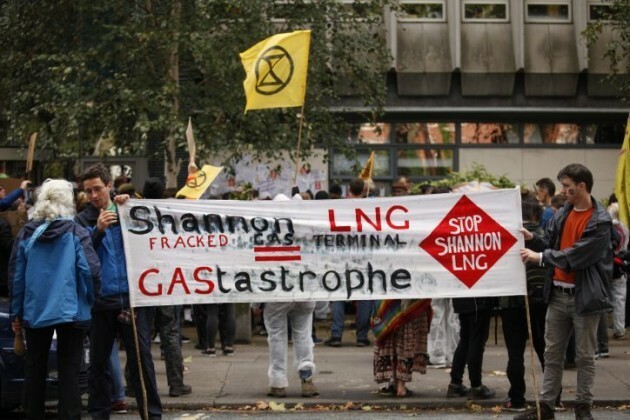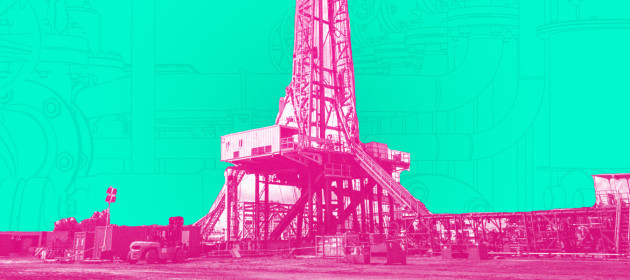Only a full ban can save Northern Ireland from the threat posed by fracking, Eddie Mitchell of Love Leitrim outlines concerns of border communities that fracking may be set to get back on the agenda in the North by Eddie Mitchell, July 1, 2021, thejournal.ie
IT HAS BEEN four years since Ireland banned fracking, yet communities in Northern Ireland remain under imminent threat from an unwanted onshore oil and gas industry.
Despite strong public opposition, two companies are currently seeking petroleum licences, one around Lough Neagh and another in Co Fermanagh.
Under the very real threat – between 2011 and 2017 – fracking may take place in Leitrim, the people of that county listened to personal testimony from communities in North America and Australia who had been impacted by the industry.
We also read the scientific and medical findings demonstrating the risks and harms of drilling and fracking. We got it; fracking is not a good thing.
So, we joined forces with our neighbours in the North and together, we won that debate. Fracking is toxic. Everybody gets that now. It is a mainstream view on the island of Ireland at this stage.
Is there a renewed risk of fracking happening on the island of Ireland? Read more here on how you can support a project by the Noteworthy team to investigate this.
Concerns managed, not address
It is very frustrating then that, despite there being strong political support for a ban on fracking in Northern Ireland, it feels like our neighbours’ concerns are being managed rather than addressed. Every hard-won victory they have achieved has been undermined in some way.
In 2014, for example, Arlene Foster protected her community by refusing to extend a petroleum licence in Fermanagh but warned that the company could be back. She was right.
After initially seeking legal action against the decision, the company – Tamboran Resources UK – has now successfully reapplied for a licence and is awaiting a decision.
While the company has said it now plans to use only conventional drilling techniques, this only applies to the first five year term of what could amount to a 30-year petroleum licence.
Foster’s decision was followed up with a comprehensive 2015 strategic planning policy statement that states there should be “a presumption against” exploitation of valuable minerals by unconventional hydrocarbon extraction until there is “sufficient and robust evidence on all environmental impacts”.
There is a big caveat here, however, as this effective ban can only remain an obstacle to the granting of a petroleum licence until research into the environmental impacts is completed.
And this protection may very well expire soon with the results of research soon due into the economic, societal and environmental impacts of onshore petroleum exploration and production.
Following a concerted effort from the local community, another attempt at a ban came within policy in the Fermanagh and Omagh District Draft Local Development Plan 2030 outlining that “the Council will not permit exploitation of unconventional hydrocarbon extraction until it is proved that there is no adverse effects on the environment or public health”.
However, under the policy, only hydrocarbon extraction itself is covered and the policy does not specially apply at the exploration phase. Again, another hard-won local plan will not be effective at blocking application associated with an onshore gas exploration development.

Protest against fracked gas outside the Department of Climate imports in October 2019 Source: Niall Sargent
Policy needs to change
There then looked to be a progressive move on a nationwide level in October 2020, as Stormont passed a motion with almost unanimous support calling on the Executive to instigate an immediate moratorium on petroleum licensing. The main voice of discontent, however, was Economy Minister Diane Dodds.
RELATED READS
24.05.21 Fracking not compatible with human rights law, says Irish study
While she recognised the step change in thinking about fracking, she has stressed the need to provide an evidence base for policy options under her control that will go before the Executive for final decision.
Her department is now pushing ahead with a research project to examine the potential impacts of fracking. It feels like no matter how hard our neighbours in Northern Ireland campaign, officials within government want to operate under a policy that sets out to expedite the exploitation of petroleum.
We understand the difference between mitigating impacts to an acceptable level under such a policy and stopping an oil and gas industry becoming a going concern on the island of Ireland.
Eventually the Northern Ireland Executive will have to consider petroleum licensing, but we need to be incredibly careful and make sure there are policy options available that allow them to consider prohibiting the granting of petroleum licences altogether in Northern Ireland.
That kind of option could fit well into the current Climate Change Bill that’s progressing through the legislative process right now. Campaigning against the oil and gas industry is hard but very necessary if you live in a petroleum basin.
Sinn Fein has launched a Bill to ban fracking that looks set to come onto the floor of the Northern Ireland Assembly in the coming months. The definition of fracking will be crucial.
This is important to get right as, for example, exploration for unconventional gas is continuing in places like Cheshire even with a moratorium on fracking in England.
Only a ban on petroleum licensing will ensure full protection for the people of our island.
Eddie Mitchell is a farmer living in North Leitrim and activist fighting fracking since 2011. He is a member of Love Leitrim, a group campaigning for the banning of fracking on the island of Ireland.#OPEN JOURNALISM No news is bad news Support The Journal

WHAT THE FRACK investigation
Do you want to found out if there is a renewed risk of fracking on the island of Ireland?
The Noteworthy team want to investigate the reasons why authorities in Northern Ireland are pushing ahead with a study of the economic, societal and environmental impacts of fracking despite well-documented health and climate impacts.
Here’s how to help support this proposal>
Comments:
Michael Bodycoach:
Fracking should be banned full stop
Patrick Kiely:
Ban it

Refer also to:
Anthony Ingraffea, PhD, Dwight C. Baum Professor of Engineering, Cornell University, said, “In 2008*, when New York State first declared a moratorium on fracking, only six peer-reviewed papers on the health and environmental impacts had been published. Now there are more than 400, and the vast majority show a clear and present danger. What’s more, many problems are unfixable by regulations of any kind.”
2012: Richard Moorman, past Tamboran CEO: Notes from the Shale Gas Trenches.
The former CEO of Tamboran Resources, Richard Moorman was determined to convince the public in Ireland of the benefits of developing their unconventional gas resources. …
